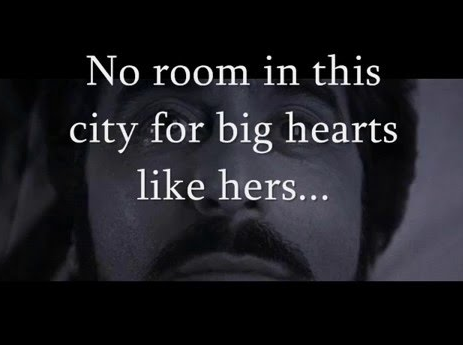It is a tale as old as the first spoken and written words in literature: a fatally flawed hero tries to avoid his inevitable tragic destiny by making good on his past, attempting to avoid the same mistakes twice. And every time it gets portrayed in cinema–particularly by Brian De Palma–it continues to have a powerful and stirring impact.
Though De Palma was initially hesitant to direct “another movie with Spanish speaking gangsters” starring Al Pacino in 1993, the irresistibility of the script for Carlito’s Way, based on New York State Supreme Court judge Edwin Torres’ book, Carlito’s Way, as well as the sequel, After Hours, proved too strong to resist. Of course, casting Al Pacino as the Puerto Rican lead of Carlito Brigante isn’t to be taken without some skepticism, which is perhaps why, at one point in the movie, members of the Italian mob note, “When I first met him, I thought he was Italian.”
After Carlito gets out of the joint serving five years on a thirty-year sentence thanks to his dubious lawyer, David Kleinfeld (Sean Penn), he vows to go straight, to live a clean life while saving up the $75,000 he needs to retire to the Bahamas to be a “car rental guy.” But right away, he’s pulled back in to the life of crime when his cousin, Guajiro (John Ortiz), implores Carlito to accompany him on a drug run that ends up going horribly awry, pulling Carlito back into the world of crime when he shoots out Guajiro’s suppliers and pockets the $30,000 lying on the table to buy out a nightclub from another criminal named Saso (Jorge Porcel), a known gambling addict.
In spite of Carlito being back in the underworld now that he’s the co-owner of El Paraiso (which is supposed to be in Harlem, but, in reality, the exterior is Bushwick), he remains immune to the temptations around him–even when young thugs like Benny Blanco (John Leguizamo) try to goad him with their braggadocio, insisting, “I don’t know, but there may be some mis-fuckin’-understanding, I don’t know man, but maybe you don’t remember me, my name is Benny Blanco…” In response, Carlito seethes, “Maybe I don’t give a shit. Maybe I don’t remember the last time I blew my nose either. Who the fuck are you, I should remember you? What, you think you like me? You ain’t like me motherfucker. You a punk. I’ve been with made people, connected people. Who you been with? Chain-snatching, jive-ass, maricón motherfuckers. Why don’t you get lost? Go a head, snatch a purse. Come on, take a fuckin’ walk.” Of course, Carlito’s pride when it comes to protecting not just his reputation, but also Kleinfeld from people like Blanco is what ultimately becomes his undoing. There is no place for loyalty on the streets he once used to know. But the ordinance he has lived by his whole life colors his every action, even when those close to him can see how blatantly it’s going to destroy him. In particular, Carlito’s former and once again current flame, Gail (Penelope Ann Miller, who shows a fair amount of range in this film from Big Top Pee-Wee), knows all too well what a “cockroach” Kleinfeld is.
Nonetheless, Carlito can’t back out on a “friend” in need of a favor. And Kleinfeld needs a big one: busting Italian mobster Tony “T” Taglialucci out of Rikers Island with his yacht. The reason Taglialucci demands this near impossible request stems from Kleinfeld’s thievery of a one million dollar payoff intended for another gangster–though Kleinfeld tries to deny the accusation. Kleinfeld’s need for Carlito to accompany him on the boat is pitched at a coke-addled party at his Long Island beach home, where, in one of many iconic scenes, Kleinfeld yells at his guests for having sex in front of everyone, shouting, “You got any manners? You wanna fuck her, fuck her like a normal human being–take her in the bedroom.”
In the back of his mind, Carlito knows there is something sinister about Kleinfeld’s operation, but his commitment to repaying the favor he did in getting him out of the joint far earlier than expected is too strong to simply toss out in order to execute that beautiful thing called self-preservation. There is a code, you see. One that his old school “Carlito’s way” can’t simply toss out in order to do what’s best for himself. But when you’re trying to change, to escape the very people and environment that turned you diabolical in the first place, it’s impossible to make any headway when you remain closely tied to them–fatally dedicated. Notoriously, the beginning of Carlito’s Way is the end, but it’s what’s in between that shows us all how unavoidable a certain fate can be. This goes double for those who find out there’s “no room in [New York] city for big hearts.”






















